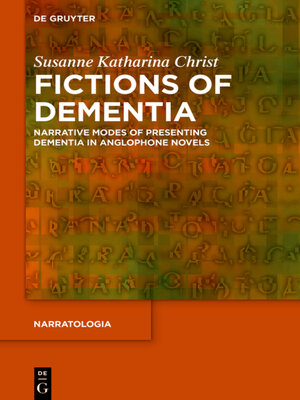Fictions of Dementia
ebook ∣ Narrative Modes of Presenting Dementia in Anglophone Novels · Narratologia
By Susanne Katharina Christ

Sign up to save your library
With an OverDrive account, you can save your favorite libraries for at-a-glance information about availability. Find out more about OverDrive accounts.
Find this title in Libby, the library reading app by OverDrive.



Search for a digital library with this title
Title found at these libraries:
| Loading... |
Taking its cues from both classical and post-classical narratologies, this study explores both forms and functions of the representation of dementia in Anglophone fictions. Initially, dementia is conceptualised as a narrative-epistemological paradox: The more those affected know what it is like to have dementia, the less they can tell about it. Narrative fiction is the only discourse that provides an imaginative glimpse at the subjective experience of dementia in language. The narratological modelling of four 'narrative modes' elaborates how the paradox becomes productive in fiction: Depending on the narrative perspective taken, but also on the type of narration, the technique for representing consciousness and the epistemic strategy of narrating dementia, the respective narrative modes come with different prerequisites and possibilities for narrating dementia. The analysis of four contemporary Anglophone dementia fictions based on the developed model reveals their potential functions: Fiction allows readers to learn about the challenges of dementia, grants them perspective-taking, it trains cognitive flexibility, and explores the meaning of memory, knowledge, narrative and imagination, and thus also offers trajectories of a cultural coping with dementia.






